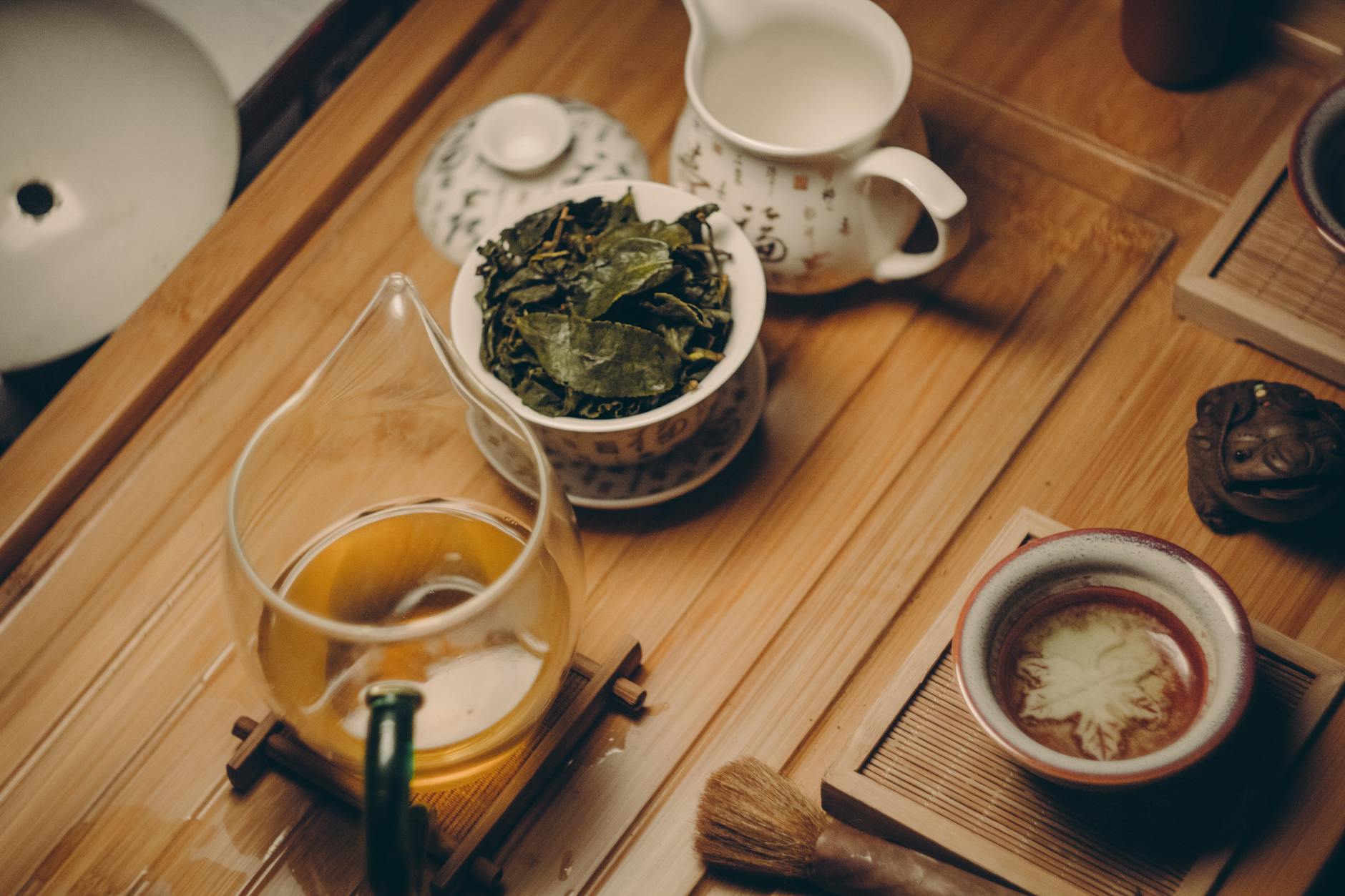Ah, the age-old debate among tea enthusiasts: Matcha Powder versus Green Tea. While both hail from the same plant—Camellia sinensis—their journey from leaf to cup couldn’t be more different, leading to distinct flavors, health benefits, and uses.
Whether you’re a seasoned tea drinker or new to the tea party, understanding these differences can elevate your tea experience. From the vibrant hue of matcha to the calming brew of green tea, each offers a unique array of benefits and sensory delights.
Let’s steep ourselves into the world of these two green teas, comparing their characteristics, benefits, and ideal uses to help you decide which cup to sip next.
Origin and Production: A Tale of Two Teas
Both matcha and green tea originate from the Camellia sinensis plant, but their paths diverge significantly when it comes to production. Green tea is made by harvesting the leaves, which are then quickly heated—either by steaming or pan-firing—and dried to prevent oxidation, preserving their green color and fresh flavor. Matcha, on the other hand, involves a more meticulous process.
Several weeks before harvest, the tea plants are shaded to boost chlorophyll levels and increase amino acids. After harvesting, only the finest tea leaves are selected, steamed, and dried. The stems and veins are removed, and the remaining leaf is ground into a fine, bright green powder.
Taste and Aroma: A Sensory Journey
The taste profile of matcha and green tea is as distinct as their preparation. Matcha is celebrated for its rich, creamy texture and a unique balance of sweetness and umami, often described as a “full-bodied” flavor.
In contrast, green tea offers a wider range of flavors, from grassy and fresh to sweet and seaweed-like, depending on the variety and brewing method. The aroma of matcha is sweet and grassy, while green tea’s scent can vary significantly but is generally more subdued and can be floral, nutty, or earthy.
Health Benefits: A Potent Source of Wellness
Both matcha and green tea are lauded for their health benefits, largely due to their high concentration of antioxidants, particularly catechins. However, matcha takes the lead in the health department due to its concentrated form.
Consuming matcha means you’re ingesting the whole tea leaf, not just the brewed water, which amplifies its health benefits. These include improved heart health, enhanced weight loss, and a boost in metabolism. Green tea also offers a wealth of benefits, such as reducing the risk of cardiovascular diseases and supporting weight management, but at a more moderate level compared to matcha.
Caffeine Content: Energizing in Moderation
Caffeine is another area where matcha and green tea differ. A standard serving of matcha contains more caffeine than a brewed cup of green tea—approximately double the amount. This makes matcha an excellent choice for those seeking a more substantial energy boost without the jitters associated with coffee. However, for those sensitive to caffeine or looking for a gentler lift, green tea provides a perfect alternative.
Culinary Uses: Beyond the Tea Cup
Matcha’s unique properties have made it a star in the culinary world, far beyond traditional tea ceremonies. Its powder form allows it to be easily incorporated into smoothies, lattes, and baked goods, adding not only flavor but a vibrant green color. Green tea, while not as versatile in terms of cooking, can be used to infuse a variety of dishes and beverages, from ice creams to cocktails, offering a subtle flavor and antioxidant boost.
Environmental Impact: A Greener Cup
The environmental impact of both teas is worth considering. Matcha’s intensive shading and production process can be more resource-intensive, requiring more water and care than green tea. However, sustainable farming practices and organic certifications can mitigate some of these impacts, making both green tea and matcha more eco-friendly choices compared to other beverages.
Matcha Powder and Green Tea, each with its unique charm, offer a delightful journey into the world of tea. Whether you’re drawn to the rich, vibrant experience of matcha or the delicate, diverse flavors of green tea, both promise a host of health benefits and a moment of zen in your day.
By understanding their differences and benefits, you can make an informed choice on which tea best suits your taste, lifestyle, and wellness goals. So why not brew a cup of your favorite, sit back, and savor the serene complexity that these two teas bring to the table?






